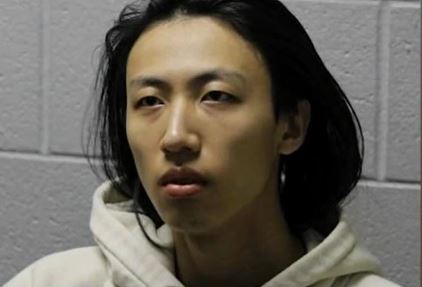In this column, Thomas Lee discusses his fears about the tension between the U.S. and China, as well as the ramifications it has for Asian Americans.
by Thomas Lee
I’d like to say I’m looking forward to 2024. But that would be a bald-faced lie.
We’re heading into another presidential election and I’m still not over the last one. And just like 2020, it will probably be Trump versus Biden.
Already, I’ve seen headlines about the even crazier things Trump will do if he regains office.
LATEST STORIES
But for me, one thing looms large above all else: China.
I fear that the United States and China will fight a war and that millions of Asian Americans like myself will get caught in the crossfire. I fear deportations, incarcerations, blacklists, violence, and raw hatred.
You can call me paranoid. I call myself literate. Thumb through a history book and you’ll see that America throughout its 247-year-old history has demonstrated an unfortunate habit of lashing out against its own citizens because of a conflict with a foreign entity.
The United States has many gifts but context and cool logic are not among them.
It happened with the French during the XYZ Affair. It happened with the British during the War of 1812. It happened with the Germans during World War I. It happened with Communists during the Red Scare and Cold War. It happened with Arabs during the Persian Gulf War. It’s happening right now with Muslims because of Al Qaeda, ISIS, Taliban, Iran and Afghanistan.
And now we have the makings of an ugly conflict with China. President Xi Yinping, an ardent nationalist who fashions himself as another Mao Zedong, essentially made himself leader for life. He has promised China will take over Taiwan one way or the other.
China has also been aggressively trying to exert economic and territorial control over what it deems the natural sphere of influence in Asia, thereby butting heads with the United States and its allies in Japan, South Korea, the Philippines and Australia.
In the United States, President Biden has issued orders blocking China from acquiring technology like artificial intelligence. Members of Congress have called for the country to ban TikTok, which is owned by a company called ByteDance in China.
While in office, Trump, who campaigned on the premise that China’s trade policies cost American jobs, slapped tariffs on Chinese products. In response, China levied its own penalties on U.S. goods. FBI Director Christopher Wray told Congress that Chinese students and scholars posed an intelligence threat to the United States.
More disturbingly, Trump kept referring to the coronavirus as the “China Virus,” in which he accuses China of creating the virus out of a laboratory in Wuhan. (Scientists and intelligence agencies say the evidence is inconclusive so far). His words led to people attacking Asian Americans throughout the country.
It’s getting ugly. But beyond current events, Asian Americans have always had good reason to worry. More so than any other racial/ethnic group in the United States, Asian Americans are often cast as foreigners. People frequently assume we don’t speak English. We often get asked where do we “really” come from, no matter if we are citizens or even born in the country.
Those assumptions have often led to discrimination and even violence. Chinatowns first formed in cities like San Francisco and New York as a way for Chinese immigrants to protect themselves from a hostile population. In 1882, President Chester Arthur signed into law the Chinese Exclusion Act, which barred Chinese laborers from entering the United States for a decade. It was the first time an immigration law specifically targeted a whole group of people based on their nationality.
But the government action that has most traumatized Asian Americans is Executive Order 9066. Signed by President Franklin Roosevelt shortly after Japan bombed Pearl Harbor, the law authorized the military to “relocate” 120,000 people of Japanese ancestry, citizens or not, from the West Coast to internment camps in states like New Mexico and Montana. Executive Order 9066 remains one of the worst mass violations of civil rights in United States history.
It’s not too hard to imagine the United States repeating the same mistake should America go to war with China. And make no mistake: a military conflict between the two countries would be far worse than Japan’s attack on Pearl Harbor.
Let’s start with the obvious: China and the United States both possess nuclear weapons. But they also have enough conventional firepower to inflict massive casualties on each other.
People assumed that integrating China into the world economy and increasing trade with America would not only generate prosperity but ensure peace.
But that just means we have more to lose. The world’s two largest economies are now so co-dependent that we’re likely to witness a severe global recession or even a depression should a war break out. Remember, China finances most of U.S. debt. Cutting back purchases of U.S. Treasuries alone would lead to higher interest rates and slow growth.
In a war, Asian Americans would ultimately pay the price. I say all Asian Americans, not just Chinese Americans like myself, because we all look alike to white Americans. They can’t tell the difference.
For those people naïve enough to think that the United States has learned from its past mistakes, I would say we are already repeating those mistakes with Muslims.
Now imagine a big war with China. Once American soldiers come home in caskets and people start losing their jobs because of the resulting economic turmoil, it won’t take long for the United States to revert back to its worst instincts.
AsAmNews is published by the non-profit, Asian American Media Inc. Follow us on Facebook, X, Instagram, TikTok and YouTube. Please consider making a tax-deductible donation to support our efforts to produce diverse content about the AAPI communities. We are supported in part by funding provided by the State of California, administered by the California State Library in partnership with the California Department of Social Services and the California Commission on Asian and Pacific Islander American Affairs as part of the Stop the Hate program. To report a hate incident or hate crime and get support, go to CA vs Hate.








